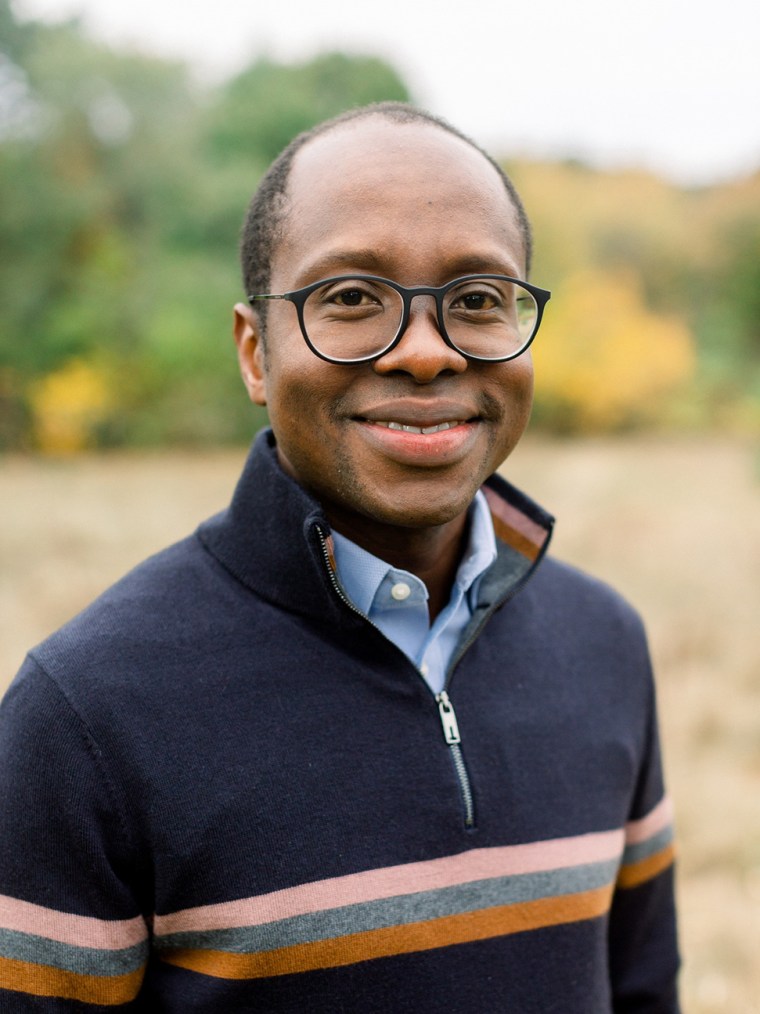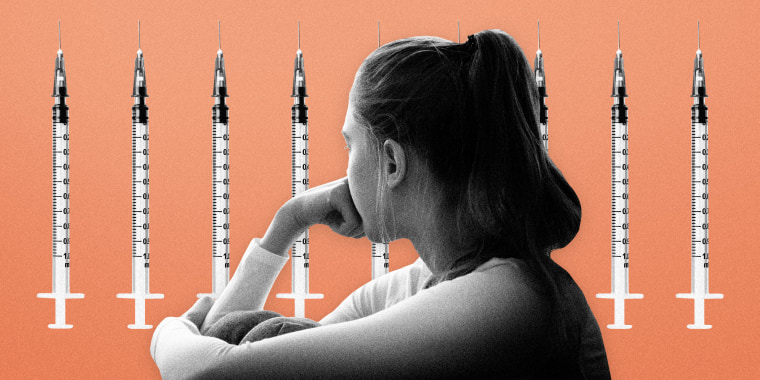Toward the end of the fall semester, Kelley Nicholson-Flynn, an administrator and teacher at a private school in the Bronx, gave her high school bioethics elective a prescient assignment: make a vaccination prioritization list.
She divided her students at the Riverdale Country School into groups and asked them tough questions. Who should get vaccinated first, teachers or grocery store workers? Should you first prioritize people over 75? Or all those over 65?
Just a few weeks later, the abstract questions she posed in class became concrete when she became eligible for her vaccination in New York.
Nicholson-Flynn, 51, has been leading her school’s reopening effort and works in-person five days a week. Still, her school is well-resourced, she is not high-risk and her in-laws in their 80s had yet to be vaccinated.
“As a leader and an administrator, I also felt like I should have all my teachers vaccinated before I got vaccinated,” she said. “I wish there were a system that would say with more granularity, ‘these people get it, then those people.’”
She ultimately got the vaccine, and posted on Facebook about it, sharing her excitement and guilt. Others who had been vaccinated felt similarly, saying they knew people who deserved it before them.
As more people get vaccinations, what was supposed to be a celebratory event of relief has come with mixed emotions. Vaccine shortages, mismanagement, unequal distribution and stories of expiring doses have made some who’ve received it feel guilty even though their states have said it’s their turn for the shot.
Dr. Tafadzwa Muguwe, a physician at a Massachusetts hospital who has been treating Covid-19 patients since March, was overcome with gratitude upon receiving his first dose in December. He had seen the dangers of the virus for people of all ages close-up, and now didn’t have to worry about holding his infant when he got home from work.

Between Muguwe’s first and second doses, his feelings grew more complicated after his mother, who lives in Zimbabwe, contracted Covid-19.
“I have no clue when or if she will ever get the vaccine,” Muguwe, 38, said. When his mom and other family members got sick, he spent the whole weekend on WhatsApp, advising on the management of their care thousands of miles away.
“It’s not just about having the means,” he said. “There isn’t a medical system there that will save lives the way the one I’m a part of will.”
As grateful as he was for the historic innovations that created a Covid-19 vaccine so quickly and as rightfully deserving of it as he felt, the heaviness of unequal global distribution weighed him down.
Vaccinated individuals comparing themselves to others is often empathetic and compassionate, but ultimately unproductive, said Jessica Stern, a clinical psychologist and assistant professor at NYU Langone Health.
“Individuals don’t necessarily need to concern themselves with those systems to decide if they are deserving,” she said. “Responding to Covid is a communal team effort. As much as we have to work as a team to adopt safety precautions, it’s also our responsibility to get the vaccine.”
Gestures of guilt or wanting to wait to get the shot might end up holding up the system further, she said. Still, feeling guilty is natural when rollout has been haphazard and Americans have been flooded with conflicting messages from state and federal authorities.
Kale Langley, 24, didn’t classify his work grading papers as a teaching assistant at New York University as essential and wasn’t expecting to get the vaccine until the summer. But when a friend told him that TAs qualified, he filled out New York City’s questionnaire. News stories had just been circulating of thousands of doses expiring or being thrown out.
“When New York had received 1.2 million doses and had administered 400,000, I thought, ‘This is probably not completely unethical for me to do.’ The bottleneck is not finding qualified people for the vaccine.”
Langley, frustrated that he couldn’t “trust the state to be a rational actor” in its distribution, found an appointment in a Bronx hospital and decided to go through with it.
“I show up and it’s me, some 24-year-old white dude in the Bronx, and it’s all these nurses and doctors getting vaccinated around me,” he said. “I felt like a complete fool, like I was not supposed to be there.”
Though still excited to get the shot, Langley didn’t share that he was vaccinated on social media.
“I exist on an internet of strangers who read my words outside the context of knowing me,” he said. “It’s clear from my tweets I’m not doing front-line work. People might absolutely obliterate me online for it.”
The guilt those like Langley feel can be described as a “variation of survivor’s guilt,” Stern said.
“When people feel this sense of guilt, they feel like they are undeserving. We see this with Covid transmission and survival, but also with the vaccine.”
Stern compared it to those who experience collective trauma, and how you can’t often explain why one person can move on more easily than another.
“The Covid vaccination feels like a tool to move forward, and some people are afforded it before others,” sometimes without much sense or explanation, and sometimes by sheer luck, Stern said.
Trish Felix, 55, counts herself among the lucky ones. Felix works in development at a private school in New Jersey and easily does her job from home. She qualified for the vaccine under the state’s guidelines regarding school employees.
“At first it seemed orderly, like I was going to be put in this big magical New Jersey queue and was taking it from someone else more deserving,” she said of her initial hesitation. But then she watched the dysfunctional rollout, the way you had to sit on a web page refreshing for hours to find a spot.
Now, she said, “I really don’t think I’m in any kind of virtual line.”
“I think everyone should just do what they can to get a shot. I help in a small way, even if I get it before the compromised people I live with. I’m helping protect them.”
Dr. Fatima Z. Syed, an internist at Duke Primary Care in North Carolina, said she hopes most people offered the vaccine end up taking the attitude of Felix.
Syed, 33, had her own feelings of guilt when she got vaccinated. She sees patients all day who talk about pandemic anxiety and loneliness, or moved to the area to be closer to grandchildren they now can’t see.
Ultimately, she said, people said to be essential and eligible for the vaccine should trust those who classified them as such.
“The rollouts that are happening are based on evidence, it’s not happening willy-nilly,” she said. Even if you might not feel important to the pandemic recovery, your vaccination helps.
“We don’t ask anything of our patients that we don’t have evidence for. If you have the opportunity to be vaccinated, take advantage of it.”

